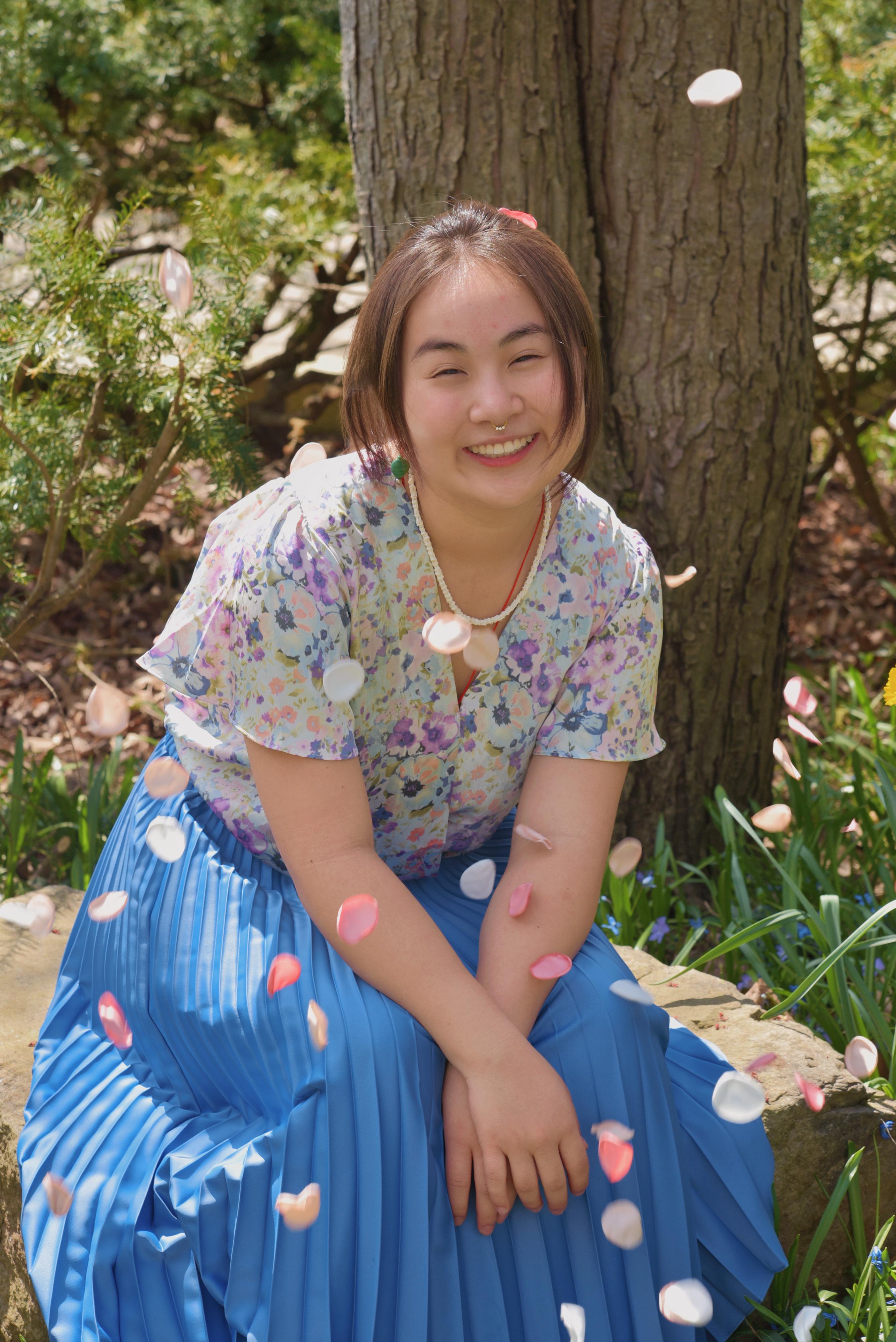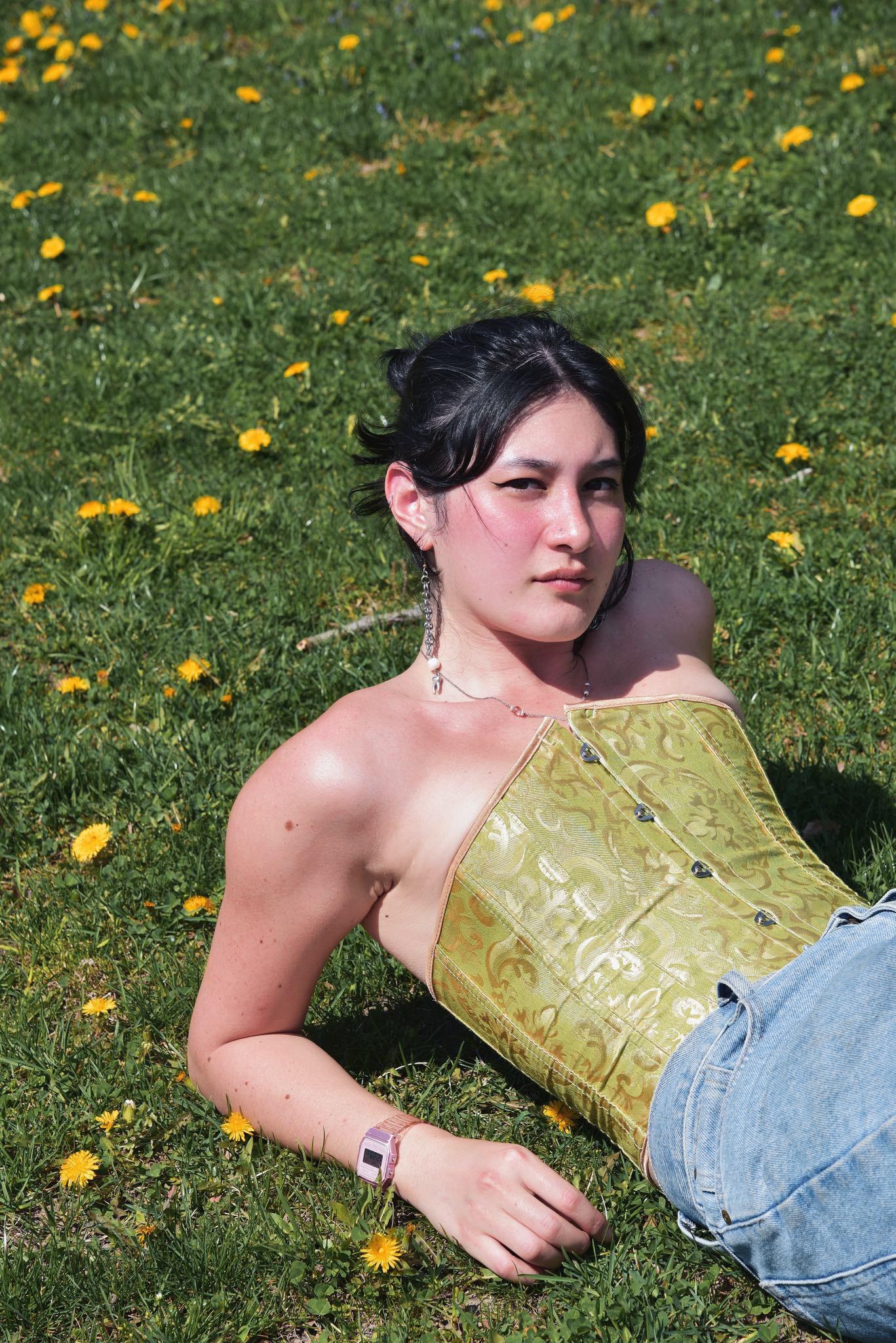
6 minute read
Professor Danielle Godon-Decoteau
from BIPOC Lenses Issue 5
by bipoclenses
Interview by Nikki Keating
NK: So, how long have you been working at Oberlin?
Advertisement
GD: This is a new job for me. I started in the fall of 2022.
NK: Awesome. And were you teaching beforehand in a different college, or is this the first school you've taught at?
GD: I was a visiting professor at Mount Holyoke College in MA for the four years before this.
NK: Oh, gotcha, and you've always been a professor in psychology, right?
GD: Yep
NK: Did you study psychology as in undergrad?
GD: No, but I did in graduate school. My Ph.D. is in clinical psychology, but my undergraduate degree is in business administration. I had a bit of a “quarter-life crisis,” I call it.
(Laughs)
After a couple of years of working in corporate finance and accounting, I decided to return to school. And if I was going to uproot my career at that point, I wanted to study what I care about and love, which is psychology.
NK: Wow, so you've always loved psychology?
GD: Yes. My friends in college used to make fun of me for majoring in business yet my heart was in psychology.
NK: And were you always into clinical psychology?
GD: I didn't know what area I was interested in at first. But I would make observations about my experiences in the world, and a lot of times, there were discrepancies between how I was perceived and how I felt. So I used to think about people a lot. I would see people and say, "I just wanna know their stories " Because people are so complex and there's so much to know I guess that was the start of me gravitating toward clinical psychology
NK: And that leads me to my next question about your research Specifically, you're in the area of Asian American experience and mental health I first really want to know how you got into this type of research
GD: I did a terminal master's program at Mount Holyoke because my background was in business administration so I needed to fill in the missing educational pieces to be able to apply to doctoral pro
-grams in psychology. I went into the program with an interest in race and culture that was broadly defined. My advisor was interested in intersections between race and culture and trauma at the time, and I was like, "I could be interested in that too " And one day, my advisor advised me to take a class that was being offered on the psychology of adoption
NK: Oh wow, that sounds interesting
GD: Well, initially I didn’t really have an interest in it. But once the class started, I was just completely into it. I was reading academic sources for the first time that were helping me articulate things that I felt but didn't know how to say, being an adoptee myself. And I just knew that was the area I wanted to get into. So my master's thesis focused on Korean transracial adoptees’ sense of belonging and a sense of exclusion. When I was working on that master's thesis, I was also doing literature reviews and simultaneously applying to clinical psychology doctoral programs
NK: Impressive!
GD: Thank you! That's how I found my mentor She had written an article that was a primary article for my thesis. So I reached out to find out if she was accepting students the following year, and that was that.
NK: That's so cool. And so, what were your findings in your research? How did you go about the process of collecting data?
GD: When I started working with my mentor in my doctoral program, I decided to broaden my scope and not just focus on Asian transracial adoptees, but Asian Americans in general And the construct that I was very interested in was internalized racism
NK: Mm That is the unconscious acceptance of the racial hierarchy in America, right? It consistently places white people at the top of the hierarchy, with POC below.
GD: Right. So for my dissertation, I looked at how internalized racism affects the relationship between racism-related stress and mental health symptoms in Asian Americans. The first part of that process was to define what I meant by internalized racism in the first place.
NK: Interesting.
GD: Literature on internalized racism in Asian Americans has grown quite a bit within the past five years, but at the time, it was sparse So I did a structural equation modeling analysis which allowed me to use multiple measures that I theorized were different parts of internalized racism, to construct a model that said, okay, this is what it looks like in the Asian American sample that I have and how it relates to racism-related stress and mental health.
NK: So what were the results?
GD: What I found was that internalized racism in Asian Americans has two manifestations. One is internalized racial and ethnic inferiority and the other is internalized meritocracy. The first is what usually comes to mind when we think about the concept of internalized racism.
NK: Devaluing oneself and wanting distance from others within one's group
GD: Right, as well as valuing whiteness, valuing white American beauty standards, cultural norms, and things like that. In my study, I found that there's a relationship between racism-related stress and mental health symptoms, in part, because of that aspect of internalized racism. In other words, the higher the racism-related stress, the more racial and ethnic inferiority Asian Americans experience, which is related to higher symptoms of depression, stress, and anxiety. But, my study also found that that relationship could be interrupted by pushing back on the other facet of internalized racism.
NK: Really?
GD: I called it "internalized meritocracy " The kind of idea that race and racism don't matter anymore and that Asian Americans should keep our heads down and just work really hard, and things will be fine as long as we try hard enough. But if we can decrease that piece of internalized racism, we can disrupt the other relationships too.
NK: It helps disrupt the effect racism has on Asian Americans’ mental health.
GD: Right. Because racism-related stress is going to happen. We live in a society with racism. So I want to focus on when we experience racism, how we prevent it from affecting mental health in negative ways. Now, I am thinking that developing racial consciousness in Asian Americans, at both individual and collective levels, is important I think that’s the direction I want to take my research in next How might we develop racial consciousness and transmit that collective understanding across generations? Not just to our children but also to our elders.
NK: Wow, that is amazing. And I know you are currently teaching "Advanced Methods in Racism and Asian American Mental Health PSYC 310.Do you talk about this research in your class? GD: So, in my advanced methods course, we do talk about racism and its effects on Asian American mental health. And then, we focus on research methods to investigate those effects. But I also teach a seminar course, Asian American Psychology, that covers a broader perspective–racism and mental health are a piece of it and we also talk a lot about culture, family, and the diversity within “Asian Americans.” I say that in air quotes because AsianAmerican is such a broad term. So we talk about general trends within the group, and then we talk about Asian Americans whose experiences aren't centered around what it means to be "Asian American." What are their experiences like? For example, Asian adoptees, multiracial Asian Americans, LGTBQ Asian Americans, Asian American women, refugee experiences, and the list goes on. There are many more ways in which Asian Americans are diverse. That's what we have time to cover, in that semester, though.
NK: Gotcha
GD: The goal of that class is really to be able to understand Asian American individuals at multiple levels. Levels such as individual, family, and community levels, and where Asian Americans fit in at an institutional level as well.
NK: And it's so important.
GD: Exactly
NK: Thank you so much for your time.
Course Number: 315
Course Number: 214
Fall


Chameleon
When I first moved here A stranger In an unfamiliar Social sphere
I was terrified Of being different
I changed the way I spoke The way I behaved Hiding, under a personality cloak
I'd pick up the phone, A call from back "home" My colours would change yet again
As I grew up, I swung to and fro Along the spectrum
I claim to belong to here and to there And then there are those times, I feel from both so distant As if I would never fit in anywhere.
Change seldom comes when we desire it
Soon I couldn't remember Which color I once called my own
I've forgotten how to tell, Whether i am home
What I didn't realise was Much like the cold blooded creature
The colors are all sampled Only the change is my own.









